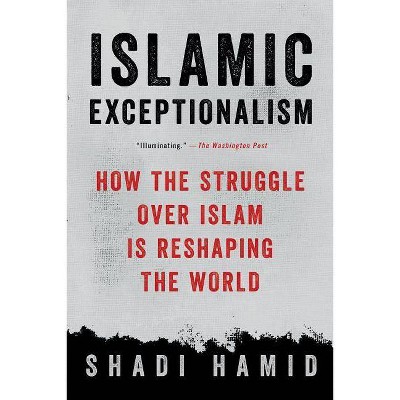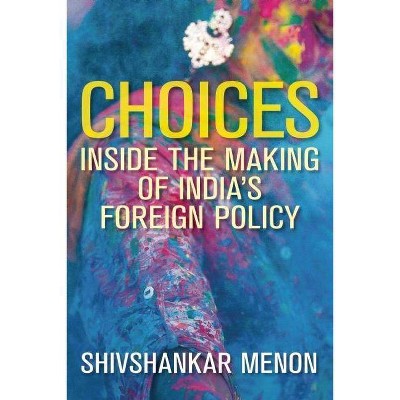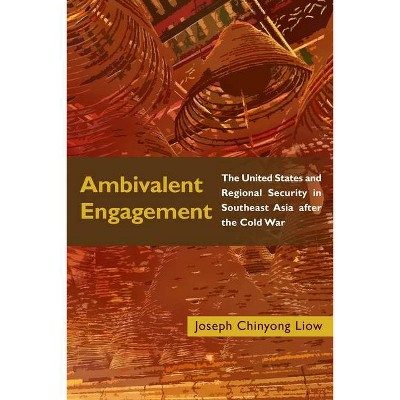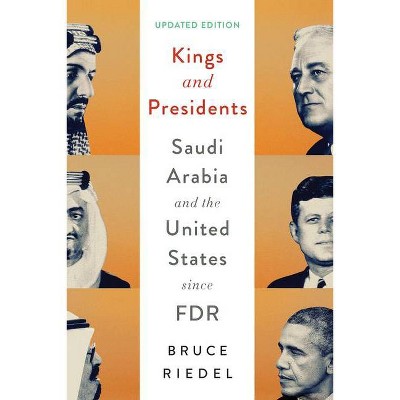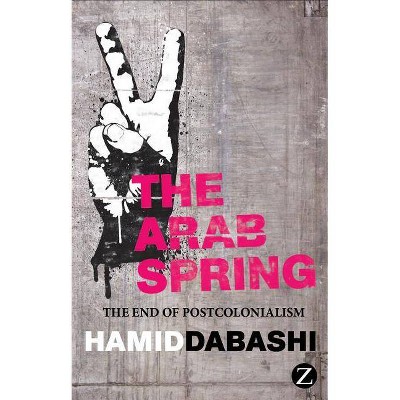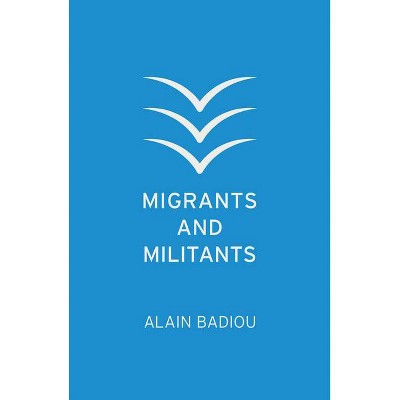Militants, Criminals, and Warlords - (Geopolitics in the 21st Century) by Vanda Felbab-Brown & Harold Trinkunas & Shadi Hamid (Hardcover)
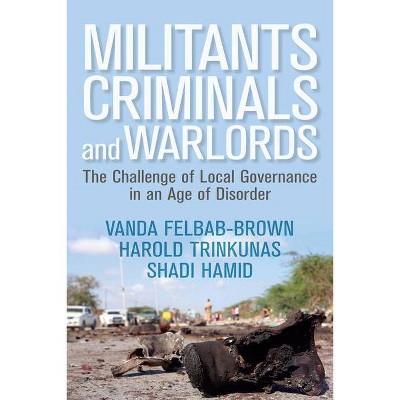
Similar Products
Products of same category from the store
AllProduct info
<p/><br></br><p><b> Book Synopsis </b></p></br></br><p>Conventional political theory holds that the sovereign state is the legitimate source of order and provider of public services in any society, whether democratic or not. But Hezbollah and ISIS in the Middle East, pirate clans in Africa, criminal gangs in South America, and militias in Southeast Asia are examples of nonstate actors that control local territory and render public services that the nation-state cannot or will not provide.</p><p>This fascinating book takes the reader around the world to areas where national governance has broken down--or never really existed. In these places, the vacuum has been filled by local gangs, militias, and warlords, some with ideological or political agendas and others focused primarily on economic gain. Many of these actors have substantial popularity and support among local populations and have developed their own enduring institutions, often undermining the legitimacy of the national state.</p><p>The authors show that the rest of the world has more than a passing interest in these situations, in part because transborder crime and terrorism often emerge but also because failed states threaten international interests from trade to security. This book also poses, and offers answers for, the question: How should the international community respond to local orders dominated by armed nonstate actors? In many cases outsiders have taken the short-term route--accepting unsavory local actors out of expediency--but at the price of long-term instability or damage to human rights and other considerations.</p><p>From Africa and the Middle East to Asia and Latin America, the local situations highlighted in this book are, and will remain, high on today's international agenda. The book makes a unique contribution to global understanding of how those situations developed and what can be done about them.</p> <p>This title is part of the Geopolitics in the 21st Century series.</p><p/><br></br><p><b> From the Back Cover </b></p></br></br><p>Conventional political theory holds that the sovereign state is the only legitimate source of order and provider of public goods in any society. But Hezbollah and ISIS in the Middle East, pirate clans in Africa, criminal gangs in South America, and militias in Southeast Asia are examples of nonstate actors that control local territory and render public goods that the nation-state cannot or will not provide.</p><p><i>Militants, Criminals, and Warlords</i> takes the reader around the world to areas where state governance has broken down--or never really existed. The vacuum has been filled by insurgent and terrorist groups, local gangs, and militias, some with ideological agendas and others focused primarily on economic gain. Many of these actors are eventually accepted by local populations and develop an enduring presence, especially where states are weak or illegitimate.</p><p>The authors show that the rest of the world has more than a passing interest in these challenges, in part because transnational crime and terrorism may interact, but also because failed states can create dangerous spillover effects, fan regional conflicts, and even threaten the very foundations of the international order.</p><p>How should the international community respond to local orders dominated by armed nonstate actors? And are local orders that compete with the state necessarily bad? The United States and its allies have generally prioritized the state above all else, while failing to accommodate--or even understand--the local cultural and religious context.</p><p>From the civil wars of the Middle East and Asia to the streets and prisons of Latin America, this book challenges longstanding approaches to governance and state-building and proposes a different path forward.</p><p/><br></br><p><b> Review Quotes </b></p></br></br><br><p>This book is an important contribution to the literature on the issues that need to be considered in the international community's efforts to stabilize countries experiencing internal disorder and non-state actor governance in parts of their territories.--Joshua Sinai, <i>Perspectives on Terrorism</i></p><br><br>A vital contribution to understanding some of the principal causes of radicalization, instability, terrorism, and societal collapse in the developing world. It would be difficult to overstate the importance of the work of these exceptional scholars in this moment of increasing uncertainty. Policymakers of all stripes would be very well served to pay close attention to its contents.--John Allen, former Commander of the International Security Assistance Force in Afghanistan and President, Brookings Institution<br><br>Provides an excellent overview of how armed groups engage in local governance. Those wanting an understanding of the major security challenges affecting the international community will benefit from reading this book.--Zachariah Mampilly, Associate Professor of Political Science, Vassar College, and author of <i>Rebel Rulers: Insurgent Governance and Civilian Life during War</i><br><br>The authors explain why some populations actually prefer to be ruled by militants, criminals, or warlords than by predatory and incompetent governments. Their book is essential reading for anyone seeking to understand the challenges still ahead in places as far away as Afghanistan or as near as Mexico.--James Dobbins, Senior Fellow, RAND, and former Assistant Secretary of State<br><br>The emergence of local orders in areas where the state is either absent or challenged by nonstate or substate actors raises several puzzles as well as dilemmas. The insightful case studies brought together in this book of both insurgent and criminal local orders highlight their astonishing variation while bringing clarity to this phenomenon.--Stathis Kalyvas, Arnold Wolfers Professor of Political Science and Director, Program on Order, Conflict, and Violence, Yale University<br><br>This book is essential reading. The authors find a way to synthesize important lessons from diverse efforts at local governance where states are weak or have failed. They show what does and does not work, and what can be realistically incorporated into a more modest and more effective model of international intervention. Conceptually sharp and well written, this is a major step in the search for enduring remedies to the current disorder. It is hard to imagine a more timely study than this insightful analysis of the ways that people are really governed when their states are unable or unwilling to do so.--William Reno, Professor of Political Science and Director, Program of African Studies, Northwestern University<br><br>This is the new thinking we need for the global crisis in governance--a clear and thoughtful assessment of the domestic origins of disorder around the world. From Afghanistan and Colombia to the rise of ISIS, the authors give concrete examples of how states and localities have limits to their capacity. An important contribution to our understanding of the post-Cold War world and the way governance and reform can be tackled in the most difficult of circumstances: by understanding the nature of local orders.--Cameron Munter, President, East-West Institute, and former U.S. Ambassador to Pakistan<br><p/><br></br><p><b> About the Author </b></p></br></br><p><b>Vanda Felbab-Brown</b> is a senior fellow in the Center for 21st Century Security and Intelligence in the Foreign Policy program at Brookings. She is also the director of the Brookings project "Improving Global Drug Policy: Comparative Perspectives and UNGASS 2016" and co-director of another Brookings project, "Reconstituting Local Orders." She is an expert on international and internal conflicts and nontraditional security threats, including insurgency, organized crime, urban violence, and illicit economies.</p><p><b>Harold Trinkunas</b> is a nonresident senior fellow in the Latin America Initiative in the Foreign Policy program at Brookings, and the associate director for research and senior research scholar at the Center for International Security and Cooperation of the Freeman Spogli Institute for International Studies at Stanford University. His research focuses on Latin American politics, particularly on issues related to foreign policy, governance, and security.</p><p><b>Shadi Hamid</b> is a senior fellow in the Project on U.S. Relations with the Islamic World in the Center for Middle East Policy. Hamid served as director of research at the Brookings Doha Center until January 2014. Prior to joining Brookings, he was director of research at the Project on Middle East Democracy (POMED) and a Hewlett Fellow at Stanford University's Center on Democracy, Development, and the Rule of Law. Hamid is a contributing writer for The Atlantic and the vice-chair of POMED's board of directors.<br></p>
Price History
Price Archive shows prices from various stores, lets you see history and find the cheapest. There is no actual sale on the website. For all support, inquiry and suggestion messagescommunication@pricearchive.us
